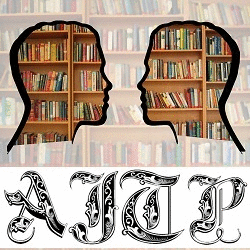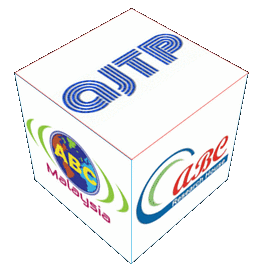Career Preferences of Bangladeshi Public University Business Students
A Policy Recommendation
DOI:
https://doi.org/10.18034/ajtp.v9i3.645Keywords:
Career Preferences, Business Graduates, Policy Maker, Public Sector Job, Bangladesh Civil Service (BCS)Abstract
Planning a career can be defined as a sequence of processes that build up a career. Choosing the right career is essential for business graduates, especially in this competitive age. This study aims to identify the career preferences of business background students of Public Universities in Bangladesh and the factors that influence their career choice, which will help the business policy maker. Both the structured and the semi-structured questions containing pre-coded and open-ended questions were used to development of the questionnaire. Likert scale and multiple-choice were also used in the questionnaire. For this study, we have 97 respondents as our sample size. We have done frequency analysis, ratio analysis, percentages, and means to reach our objective. The result shows that most business students prefer Government/Public sector jobs, especially Bangladesh Civil Service (BCS). Teaching is the second choicest profession for graduates. The key factors influencing career choice are authority and power, social recognition, job security, mental satisfaction, and payment. The most common constraints graduates face when choosing a career are a lack of practical education, subject-specialized jobs, practical education systems, unfair hiring process, and experience needed at an entry-level position. However, the findings of our study will help both students and policy maker about career-related issues. Furthermore, the in-depth extracted policies are recommended to bring more insight into the matter.
Downloads
References
Abd Rahman, N. H., Ismail, S., Ridzuan, A. R., & Abd Samad, K. (2020). Graduates’ Mindset in Designing their Initial Career. International Journal of Academic Research in Business and Social Sciences. 10(10), 917-924. http://dx.doi.org/10.6007/IJARBSS/v10-i10/7798
Achar, S. (2019a). Behavioral and Perceptual Models for Secure Data Analysis and Management. Global Disclosure of Economics and Business, 8(2), 143–152. https://doi.org/10.18034/gdeb.v8i2.653
Achar, S. (2019b). Cloud-based System Design. International Journal of All Research Education and Scientific Methods (IJARESM), 7(8), 23–30. http://www.ijaresm.com/cloud-based-system-design
Achar, S. (2019c). Early Consequences Regarding the Impact of Artificial Intelligence on International Trade. American Journal of Trade and Policy, 6(3), 119–126. https://doi.org/10.18034/ajtp.v6i3.634
Achar, S. (2021). Enterprise SaaS Workloads on New-Generation Infrastructure-as-Code (IaC) on Multi-Cloud Platforms. Global Disclosure of Economics and Business, 10(2), 55–74. https://doi.org/10.18034/gdeb.v10i2.652
Achar, S., Vijayendra, K., Hussain, S., Kejriwal, A., & Kejriwal, A. (2022). Business Trends in Digital Era: A Review. Journal of Engineering Research and Reports, 23(12), 328–338. https://doi.org/10.9734/jerr/2022/v23i12788
Adamson, S. J., Doherty, N., & Viney, C. (1998). The meanings of career revisited: Implications for theory and practice. British Journal of Management, 9, 251–259.
Ahmed, A. A. A., Asadullah, A. B. M. and Rahman, M. M. (2016). NGO's Financial Reporting and Human Capital Development. American Journal of Trade and Policy, 3(2), 53-60. https://doi.org/10.18034/ajtp.v3i2.401
Amin, R., & Rahman, M. (2018). Artificial Intelligence and IoT in Dairy Farm. Malaysian Journal of Medical and Biological Research, 5(2), 131-140. https://doi.org/10.18034/mjmbr.v5i2.516
Anas, M. M. R., & Amin, R. (2017). Fallen from the Trail – A case study based on Banking Sector in Bangladesh. ABC Research Alert, 5(3), Bangladesh. https://doi.org/10.18034/abcra.v5i3.317
Arnold, J. (1997). Managing Careers into the 21st Century. Sage.
Ashraf, G. (2019). Youths’ first choice govt jobs. Prothom Alo.
Azam, M. M. (2018). Equality of Opportunities and Quota System in the Government Services of Bangladesh: A Rights-based Analysis. ABC Research Alert, 6(1), Bangladesh. https://doi.org/10.18034/abcra.v6i1.328
Bridgstock, R. (2009). The graduate attributes we have overlooked: Enhancing graduate employability through career management skills. Higher Education Research and Development, 28(1), 31-44.
Byron, R. K. (2019). High growth, fewer jobs, The Daily Star. 17 August.
Cho, D., Cho, J., Song, B. (2010). An empirical analysis of the gender earnings gap between the public and private sectors in Korea: A comparative study with the US. Journal of the Japanese and International Economies, 24(3), 441-456. https://doi.org/10.1016/j.jjie.2010.02.001
Choo, L. S., Norsiah, M. & Tan, L. I. (2012). What drives the career choice among engineers? A case in Malaysian manufacturing plant. International Journal of Research Studies in Management, 1(2), 15–24.
Confederation of British Industry. (2009). Future fit: preparing graduates for the world of work, CBI higher education taskforce, CBI: London.
Danzer, N. (2019). Job satisfaction and self-selection into the public or private sector: Evidence from a natural experiment. Labour Economics, 57, 46–62. https://doi.org/10.1016/j.labeco.2019.01.002
Dessler, G. (2009). Fundamentals of Human Resource Management. Content, competencies, and applications. Upper Saddle River: Pearson.
Essa, M. S. I., Khan, R., Shehri, M. A. A., Shahrani, W. A., & Abdalmagid, M. (2022). Knowledge, Attitude and Practice among Girls’ in Schools towards Depression, Khamis Maushyt, the Governate of Aseer Region, 2015, Kingdom of Saudi Arabia. ABC Research Alert, 10(3), 43–50. https://doi.org/10.18034/abcra.v10i3.638
Evers, A., Anderson, N., & Voskuijl, O. F. (2008). The Blackwell Handbook of Personnel Selection. In The Blackwell Handbook of Personnel Selection.
Faruque, M. (2018). Six key factors that determine your career choices. Dhaka Tribune. 18 April.
Gati, I., Asulin-Peretz, L., and Fisher, A. (2012). Emotional and Personality-Related Career Decision Making Difficulties A3-Year Follow-Up. The Counseling Psychologist, 40(1), 6-27.
Graunke, S. S., & Woosley, S. A. (2005). An exploration of the factors that affect the academic success of college sophomores. College Student Journal, 39(2), 367-377.
Greenbank, P. (2009). An examination of the role of values in working‐class students' career decision‐making. Journal of further and higher education, 33(1), 33-44.
Greenbank, P. (2011). Improving the process of career decision making: an action research approach. Education+ Training, 53(4), 252-266.
Gunn, V., Bell, M., and Kafmann, M. (2010). Thinking strategically about employability and graduate attributes: Universities and enhancing learning beyond university. Enhancement Themes. Glasgow, Scotland: Quality Assurance Agency.
Hall, D. T. (2002). Careers in and out of Organizations, Sage, Thousand Oaks, CA.
Hasan, M. N., Afrin, S., Rahman, M. and Ahmed, A. A. A. (2020). Assessing the Nature of Job Satisfaction Level: A Study on Private Bank Employees in Bangladesh. Global Disclosure of Economics and Business, 9(2), 67-88. https://doi.org/10.18034/gdeb.v9i2.511
Hossain, M. E., & Siddique, T. (2012). Career Preference of Business Graduate in Bangladesh: A Case Study of Some Selected Private Universities. Asian Business Review, 1(2), 106-113. https://doi.org/10.18034/abr.v1i2.128
Hossain, M. (2019). Young people getting interested in government jobs. The Daily Prothom Alo. 28 December.
Igere, M. A. (2017). Career choice and its influence on academic performance of library and information science students in a Nigerian university. Information Impact: Journal of Information and Knowledge Management, 8(2), 90–98.
Jahan, M., & Ahmed, M. M. (2018). Teachers' Job Satisfaction: A Study in Secondary Schools of Bangladesh. Journal of Contemporary Teacher Education, 2, 71–91.
Joseph, P. B., & Green, N. (1986). Perspectives on reasons for becoming teachers. Journal of Teacher Education, 37(6), 28–33.
Kacmar, M. K., Andrews, M. C., Van Rooy, D. L., Chris Steilberg, R., & Cerrone, S. (2006). Sure everyone can be replaced but at what cost? Turnover as a predictor of unit-level performance. Academy of Management Journal, 49(1), 133-144.
Kewalramani, S, Phillipson, S. (2019). Parental role in shaping immigrant children’s subject choices and career pathway decisions in Australia. International Journal for Educational and Vocational Guidance, 20. https://doi.org/10.1007/s10775-019-09395-2
Khoo, K., Ban, T. K., Neng, C. Y., Hooi, B. K., & Joan, C. Y. (2015). Student choices of choosing colleges and course of study in Penang. ABC Research Alert, 3(1), Malaysia. https://doi.org/10.18034/abcra.v3i1.291
Kyriacou, C., & Coulthard, M. (2000). Undergraduates' views of teaching as a career choice. Journal of Education for Teaching, 26, 117–126.
Matin I, Bhattacharjee A, Ahmed, M. S., Das, N. C., Jahan, N., Morshed, K. A. M., et al. (2018). Youth of Bangladesh: Agents of change? Youth survey 2018. Dhaka: BRAC Institute of Governance and Development (BIGD), BRAC University and Advocacy for Social Change.
Mugonzibwa, E. A., Kikwilu, E. N., Rugarabamu, P. N., & Ntabaye, M. K. (2000). Factors influencing career choice among high school students in Tanzania. Journal of Dental Education, 64(6), 423–429.
Najar, I. A. & Yousuf, M. (2019). Career selection and its various determinants. International Journal of Research and Analytical Reviews (IJRAR), 6(1).
OECD. (2005). Teachers Matter: Attracting, developing, and retaining effective teachers. Paris: Organisation for Economic Co-operation and Development Publishing.
Perrone, L. & Vickers, M. H. (2003). Life after graduation as a very uncomfortable world: An Australian case study. Education & Training, 45(2/3), 69–78.
Rahman, M. M., Chowdhury, M. R. H. K., Islam, M. A., Tohfa, M. U., Kader, M. A. L., Ahmed, A. A. A., & Donepudi, P. K. (2020). Relationship between Socio-Demographic Characteristics and Job Satisfaction: Evidence from Private Bank Employees. American Journal of Trade and Policy, 7(2), 65-72. https://doi.org/10.18034/ajtp.v7i2.492
Rahman, M. M., Hussain, M. T., Moon, S. P., Tisha, M. M., & Lima, M. T. (2021). Impact of Customer Relationship Management (CRM) on Organizational Performance: A Study from the Perspective of Bangladesh. American Journal of Trade and Policy, 8(3), 225-230. https://doi.org/10.18034/ajtp.v8i3.609
Rahman, M., Chowdhury, M. R. H. K., Naher, S., Hasan, M. N. & Islam, S. (2017). Level of consumption of complementary foods among underweight children from 6 to 23 months in Bangladesh. International Journal of Perceptions in Public Health, 1(4), 228-234
Rashid, H. (2019). Why Bangladesh civil service (BCS) remains lucrative as career? A gender based analysis. JKKNIU Journal of Social Science, 2, 1–17.
Richardson, P. W., & Watt, H. M. (2014). Why people choose teaching as a career: An expectancy-value approach to understanding teacher motivation. In Teacher motivation, 3–19. Routledge.
Roulin, N., & Bangerter, A. (2013). Students' use of extra-curricular activities for positional advantage in competitive job markets. Journal of Education and Work, 26(1), 21-47.
Shahzad, M. N., Zahra, S. T., & Ahmed, M. A. (2014). Determinants and influences on students career choice. University Journal of Management and Social Science, 4(3).
Suhi, S. S., Oyshi, F. J., Al Mamun, M. A., Jahan, N., Shohel, T. A., Rahman, M. A., & Hossain, M. T. (2021). Public vs. private job dilemma: Influencing factors in career selection for university graduates. Plos one, 16(10), e0258331.
Tania, F., & Sultana, N. (2015). Evidence of Contraception use among the Madrasha Teachers in a Selected Area of Dhaka City. ABC Research Alert, 3(1), Bangladesh. https://doi.org/10.18034/abcra.v3i1.292
Van der Heijden, B. (2002). Prerequisites to guarantee life‐long employability. Personnel review, 31(1), 44-61.
Wahiduzzaman, M., & Raqib, A. A. (2010). Attitude of Female teachers towards their profession of government primary schools in Bangladesh. TEACHER'S WORLD, 36, 169-178.
Zareen, S., Khan, Z., & Amin, A. (2019). Empirical analysis of the determinants of the preferences for public sector jobs in district Peshawar. FWU Journal of Social Sciences, 13(2), 108–117.
--0--
Downloads
Published
Issue
Section
License
American Journal of Trade and Policy is an Open Access journal. Authors who publish with this journal agree to the following terms:
- Authors retain copyright and grant the journal the right of first publication with the work simultaneously licensed under a CC BY-NC 4.0 International License that allows others to share the work with an acknowledgment of the work's authorship and initial publication in this journal.
- Authors are able to enter into separate, additional contractual arrangements for the non-exclusive distribution of the journal's published version of their work (e.g., post it to an institutional repository or publish it in a book), with an acknowledgment of its initial publication in this journal. We require authors to inform us of any instances of re-publication.














